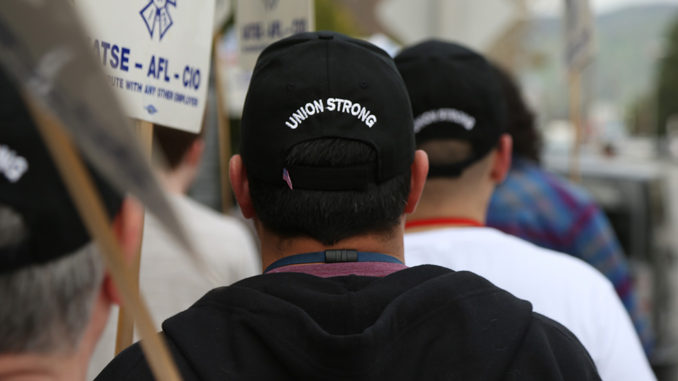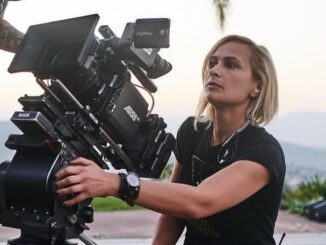
by Catherine Cusimano

In September, postcards were sent to our assistant editors working under the Basic Agreement urging them not to work overtime without proper compensation. It’s a simple concept but one that gets complicated when these editors are working in a cutting room with a director or producer that doesn’t seem to want to leave. The clock keeps ticking; the notes keep coming and, yes, they will need an output when they are finished.
Negotiated into our Collective Bargaining Agreements are provisions intended as a deterrent to the producers for working the crew excessively. What has evolved throughout the years is a mindset, one that inclines our members to give in to staying an extra hour here and there without compensation (“I’ll just stay to do the output”) and creates an environment where the producers expect them to stay without compensation (“Help us out here and we’ll take you to the next show”). This thinking is one step forward and two steps back. Our agreements are contracts much like the contract you are bound to when you buy or lease a car. No matter if it is a company lease or a personal lease (if you want to know more about questions like ‘Can I lease a car personally?‘ read up various online resources which could help you), no one would expect to call a car dealer days after finishing the finance paperwork and ask to pay less than what was agreed upon. The same holds true here. Producers cannot pick and choose what provisions they want to follow. One member can undermine the entire contract and the union as a whole by accepting substandard conditions.
Here at the Guild we are attacking this problem from several directions. Letters have been sent to the labor relations departments and discussions have been had with the heads of post-production at the studios emphasizing the Guild’s position. Additionally, as a supplement to the mailings about overtime abuse, Assistant Executive Director Cathy Repola, Field Representative Jim Saunders and I have been visiting the picture editorial crews working in television in Los Angeles, and East Coast Assistant Executive Director Paul Moore and Field Representative Annie Ballard have been visiting the sound crews in New York. On average we have spent an hour with each crew. Many things come up in these conversations and certain trends are apparent. Yes the industry is changing. Technology is forging ahead and members are being expected to adjust and perform their craft with shorter schedules, smaller crews and higher expectations.
Before I was hired as a field representative I was an assistant editor and faced these same hurdles. It was years before I educated myself on what the contract provides, years before I called to talk to a Field Representative and years before I utilized the resources the Guild provided. Often I look back at all the overtime and pension contributions I gave up just because I didn’t want to look like a whiner or a troublemaker. All I ever got out of thinking that way was being played for a fool. Finally, I stood up for what I was entitled to, earned the respect to which all Guild members are entitled and was hired repeatedly by the same producers.
It is a steep mountain we have to scale to correct all the violations that have become the norm, but eventually all the members will be armed with the contract provisions.
So what can you do? First, educate yourself on what the contract provides. Go to the Editors Guild website (www.editorsguild.com). There you will find contract provisions. Print them out and take them to your cutting rooms. Refer to them when needed and make it known that you will not settle for anything less that what your contract provides.
Secondly, make a copy of your timecard before you submit it and never write “worked” on your timecard. If you only write “worked” you may be giving up things such as night premium pay and golden hour pay. Match this timecard with your pay stub to be sure you are paid correctly.
Finally, and most importantly, support your fellow union members. If one person is being taken advantage of, stand up as a crew. There really is strength in numbers. Why do you think Production always breaks for meals and doesn’t have to fight for overtime? It’s because the entire crew will walk if they don’t get it! When an editorial crew bands together, they have the same power.
Until you as the membership fight for what you are entitled to, crews will continue to get smaller, schedules will continue to get shorter and expectations will rise even higher. By standing up for the contract and demanding proper compensation for your work, these trends will no longer be the cost-cutting tactics of the studio pencil-pushers and the true cost of these actions will be evident. Suddenly, extending the schedule a few days or bringing on another editor or assistant will be less expensive than paying the overtime for the existing crew.
Producers cannot pick and choose what provisions they want to follow. And one member can undermine the entire contract and the union as a whole by accepting substandard conditions.
It is a steep mountain we have to scale to correct all the violations that have become the norm, but eventually all the members will be armed with the contract provisions, backed by their fellow union members and no one person will be left to accept anything less than their contract.
In closing, keep the lines of communication open with us. We are here to help you and calling us does not automatically dispatch “The Spanish Inquisition.” If you have questions about the contract, or want to run a scenario by us or just want us to look over your pay stub, we are here. Remember, we once worked under the union’s jurisdiction and know first-hand what it’s like out there.





